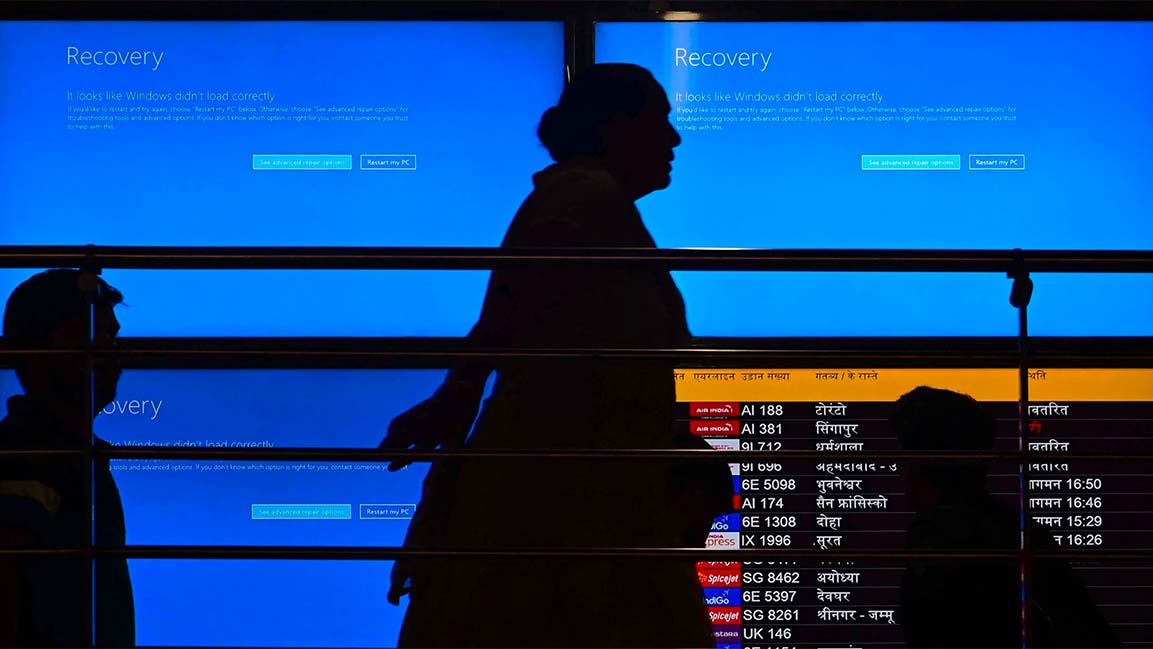- | 9:00 am
Doha is aiming to be the next tech capital
With the Web Summit next year, Qatar hopes the country can energize its startup ecosystem.

A year before the pandemic, Ahmed Isse met Anouar El Mekki and Loyan Farah at the Web Summit in Lisbon. Soon, the three men engaged in a spirited discussion about Qatar’s digital technology market. At the end of that conversation, the idea of Dibsy was born.
“The place was packed with tech giants, big investors, great talent, and many potential employers… It all inspired us to build Dibsy,” recalls Isse, now the co-founder and president of the online payment startup. Since then, Isse has attended the summit at least two more times and says it is a “gateway to see how the world works.”
In exactly a year, that “gateway” will lead to Qatar, making it the first country in the Middle East to host one of the world’s largest annual technology conferences. Founded in 2009, the Summit, usually held in Lisbon, Portugal, is among the most popular conferences on emerging digital technologies and venture capitalism.
“Web Summit Qatar will help connect a new generation of founders in the Middle East to investors, journalists, customers, partners, and more around the world…,” said Paddy Cosgrave, the founder and CEO of Web Summit, which will be held in Qatar between May 4-7, 2024 and is expected to see 7,500 participants.
HIGHLY SIGNIFICANT
The event is highly significant, with digital transformation and technology at the center of Qatar’s national and global ambitions and the sector contributing at least $3 billion to the country’s GDP across all key segments (Invest Qatar). But can it help crystallize Qatar’s position as the startup and tech hub of the Middle East?
Hosting the Web Summit in Qatar reflects the change in perspective that the world has about Qatar and the Middle East, says Jamal Bdeir, Small and Medium Business Lead, Middle East Cluster, at Microsoft, adding, “Qatar has proved during the World Cup that it is capable of hosting world-class events…The world now sees Qatar as a sports and tech powerhouse that is not only interested in investing in technology externally but also to accelerate the digitization locally.”
Dr. Danny Ramadan, Investment Director at Qatar Science & Technology Park (QSTP), believes that the summit could open up an array of big opportunities for regional startups to potentially collaborate with their international counterparts that may be working on similar technology.
But for most organizations, including government bodies such as QSTP, the chance that the event will allow international tech startups to learn about Qatar’s “vast entrepreneurship ecosystem that supports new businesses” is most exciting. “An example of this support is QSTP’s Tech Venture Fund, which backs innovative local startups and attracts international startups looking to scale in the region. We want international tech entrepreneurs to know they can take advantage of this,” says Ramadan.
Bdeir agrees that the Summit’s potential to increase FDI for Qatar and the Middle East is immense, especially with the region emerging as a new tech hub with tax benefits, ease of business, and modern legislation. Additionally, he says it will give the attendees a “special focus” on use cases and challenges unique to this region. It presents an opportunity for global tech startups to set up shop in Qatar to serve the market locally and regionally.
FINDING INNOVATIVE SOLUTIONS
Besides big tech firms, the Web Summit announcement has sparked an enormous buzz in Qatar’s startup space. Nayef Al-Ibrahim, co-founder and CEO of Ibtechar, among Qatar’s largest innovation enablement companies, hopes to collaborate in sectors that have already seen big development during the FIFA World Cup last year.
“For example, in healthcare, we can look for innovation in the field of vaccines. Automation and robotics can be used to improve low-paying services such as cleaning to develop safer, faster, and more sustainable solutions. The Qatar government is interested in artificial intelligence; we can find solutions to improve the data experience. The Web Summit can provide opportunities for all such collaborations and investments.”
The event coming to Qatar will also mean that many Qatar-based startups that didn’t get a chance to showcase their solutions in the past will get an opportunity to introduce their solutions to the global tech community without worrying about physical travel, says Bdeir.
For Michael Javier, CEO of the leading fintech startup CWallet, this, in turn, will be a good test to check “if what we are building in Qatar and the region can be accepted on the global stage.”
“There are two types of startups in Qatar, one with a Qatari founder and the other by an expat. Hopefully, the Web Summit will encourage more people to get into entrepreneurship and provide a platform to find inspiration, co-founders.”
Qatar’s startup ecosystem recently got a big push through partnerships with tech giants like Microsoft and Google. The Web Summit can provide perfect opportunities for further exposure, says Ramzan Al Naimi, founder of Innovation Café, a prominent innovation hub to support entrepreneurs.
More importantly, he points out, “the conference provides Arab youth and local talent the opportunity to connect with global companies and experts in the technology field, learn from them, and access job and training opportunities.”
FUEL COMPETITION?
And that could be of big benefit to Qatar, given that holding on to talent graduating from its premier tech colleges has been a challenge for the country. “We cannot build solutions without talent… The Web Summit will also push us to step up. Because if we don’t, the event will not bring us much value,” says Al-Ibrahim, who attended the Summit in Lisbon last year.
The past decade has also seen a fierce tech race among countries in the Middle East, and the Web Summit is being touted as a big opportunity to showcase Qatar and the region’s tech prowess. Will it fuel the competition in the region further?
“Earlier, I too believed that countries in the Middle East are competing, but as I dug deeper, I realized that each has a unique motive. For example, Riyadh focuses more on creating work opportunities for its huge population. Qatar is developing different niche tech verticals and looking for collaborations,” says Al-Ibrahim.
The optimism also comes from the event’s impact on host countries in the past. “It positions the host country as the preferred location for startup founders and entrepreneurs to establish their companies. Lisbon has greatly benefited from this over the past years as we saw a huge enthusiasm among entrepreneurs, tech enthusiasts, and company founders to operate out of the city,” says Bdeir.
And if Qatar pulls this off successfully, it will be a win-win for everyone involved, says Al Naimi. “It will establish the country’s commitment to building a robust start-up ecosystem and connect local entrepreneurs with global talent, ultimately contributing to its growth as a global technology hub.”
Eventually, says Dibsy’s Isse, what the FIFA World Cup did for sports and tourism in Qatar, the Web Summit can do for the country’s tech sector. “The Middle East needs a Web Summit; it’s time. When the FIFA World Cup announcement was made, we wondered, will it work? And it was fantastic! It will be the same for the Web Summit too. Now we have the technology, the infrastructure, the hotels, and entertainment — everything that I have seen at the summit in Lisbon. Qatar is primed to be the tech district of the Middle East,” he says.
And while he urges young tech enthusiasts to “volunteer, talk to startups and observe and learn,” his team also expects to meet new investors and bright fintech minds at the event. “It’s too early, but we want to be one of the startup showcases at the summit,” he says.








































